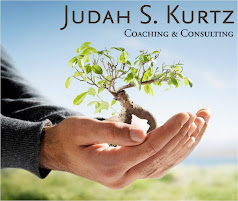 Dissatisfied?
Dissatisfied?Feeling stuck?
Need a change?
Not sure what to do?
Create the fulfilling life you have always wanted. Get a Jump-Start!
- Discover what you want and how to get it
- Define SMART goals
- Design strategies for using your time and energy more effectively
- Identify your core values
- Recognize your disabling self-talk
- Find clarity and balance
June 18 & 25 and July 2 & 9
WHERE: Center on Halsted
3656 N. Halsted St., Chicago
COST: $165
$20 off before May 31
Your Life Coaches:
Judah S. Kurtz - Coaching & Consulting - Since 2000, Judah Kurtz has provided life and business coaching and consulting to individuals and organizations to help them find clarity, success and fulfillment. He has expertise in career development, effectiveness, motivation, leadership, and organization and communication skills. He holds degrees and certifications in psychology, training, and organizational development from Northwestern University, has extensive coaching training, and has over fifteen years of experience working with corporate leadership.
Power of Three Coaching - Jennifer Foster is a Professional Life Coach and founder of Power of Three Coaching. With thirteen years of experience in corporate human resources, she became a Life Coach in order to make a generous contribution and have a positive impact on others. She received her Co-Active Coaching certificate from The Coaches Training Institute and is currently undergoing training for the industry standard coaching certification as a CEC (Core Energy Coach) through iPEC.






